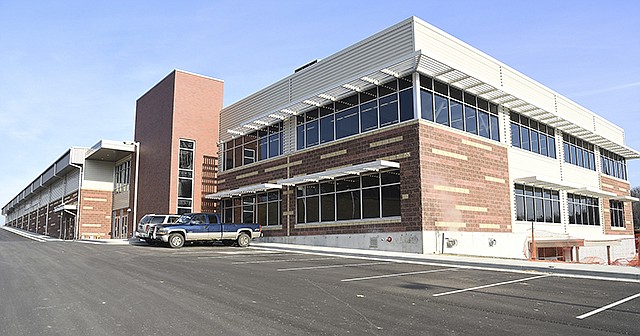Lincoln University will spend up to $2.5 million for improvements to the Dwight T. Reed Stadium and additions to the basement of the new Wellness Center that will open soon.
Six members of LU's Board of Curators on Thursday approved a bond issue for the work, with the money to be repaid through revenues raised by the new, student-approved athletic fee of $10 per credit hour, for all main campus students.
The board also approved raising fees by seven-tenths of 1 percent - the maximum increase allowed by a state law limiting in-state, undergraduate tuition and fee increases to the consumer price index (CPI) increase - starting this summer.
Curators were told LU's current average annual tuition for in-state, undergraduate students is $6,839.68.
The approved increase would raise the technology fee from $150 to $173.94 per semester and would take the average tuition and fees cost to $6,887.56.
Chief Financial Officer Sandy Koetting noted the increase would generate approximately $105,000 more in revenue, telling the board: "It certainly does not fill the gap of $1.3 or $1.4 million that we were cut" in withholdings ordered by former-Gov. Jay Nixon and current Gov. Eric Greitens and by Greitens' proposed 10 percent cut in all Missouri colleges' core funding.
The athletic work will include replacing the football field's grass surface with artificial turf for approximately $700,000; upgrading the track surface, up to $215,000; replacing the stadium's lights, up to $500,000, and sound system, up to $40,000, plus new track equipment.
The board also approved a change-order on the Wellness Center project, to spend $780,446 from the bond proceeds to "build-out" the center's basement with a training room, locker rooms for the football and men's and women's track programs, offices for both programs and "ancillary spaces."
That work should be done in time for this fall's football season.
CBJC LLC, a Central Bank subsidiary, is providing the financing for the "draw-down" plan.
"They are not requiring that you draw all of the proceeds on day one or start paying interest on money that you don't yet need," Toni Stegeman, of the Gilmore and Bell law firm's Kansas City office, told the board.
Gilbert and Bell is the bond counsel on the project.
Athletic Director John Moseley said his department streamlined its original wish list to fit the limits of the bond issue.
"We knew what our budget was, where we would cap out at," he explained. "We just made sure we stayed within that.
"From the beginning, I've been very fiscally conservative to make sure that the projects stayed within the $2.5 (million) to ensure that, in addition to the facility improvements, there are still going to be some scholarship benefits to athletics."
The work still must be submitted to bidders, Moseley noted, adding: "If the cost comes in under that, we may improve some things a little bit better."
In a separate project, curators approved a $542,800 contract with Verslues Construction, of Jefferson City, to replace the old tennis courts at Myrtle Smith Livingston Park with four new courts.
Sheila Gassner, LU's executive director of Facilities and Planning, told the board the project was scaled back from six courts because the bids for that work came in over budget.
Funding for the work includes a $75,000 Natural Resources department grant, $125,000 in matching funds from LU's maintenance and repair plant fund, and $300,000 from Jefferson City's Parks, Recreation and Forestry Department.
The city still has to approve the contract before work can begin.
Gassner said LU also has applied for a United States Tennis Association grant to help pay for the work.

